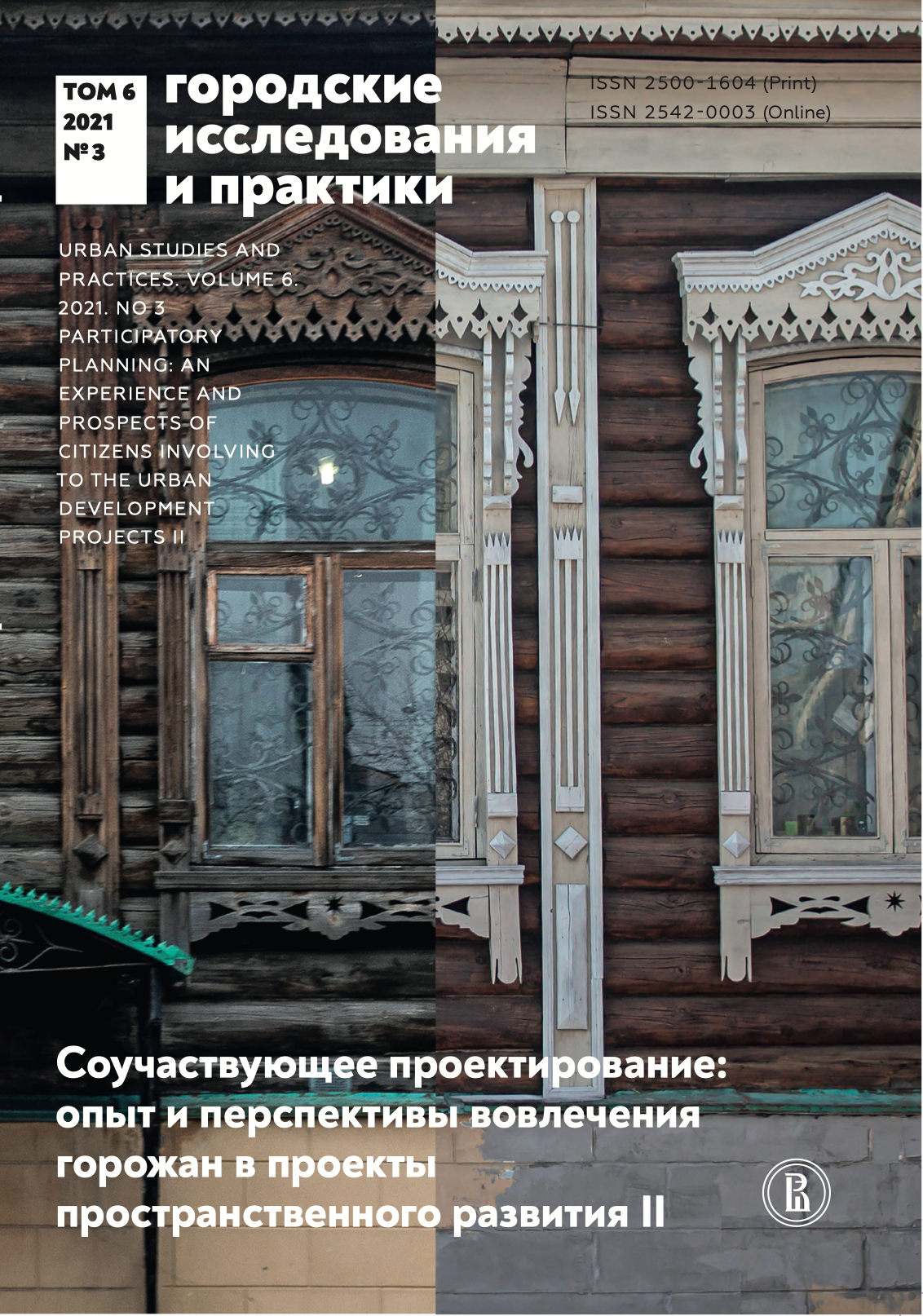The Institutional Framework of Collaborative Planning in Canada: Engagement Practices in the Vancouver Master-Plan Development
Abstract
Canada is considered to be a country where the broad involvement of all relevant stakeholders apply to all tiers of planning and design: from local urban design projects to metropolitan-scale development strategies. This case-study of successful practices of collaborative planning identifies the institutional conditions and attributes of the tools for implementing such mechanisms in the countries where participatory practices are not yet common. The Vancouver master-plan development is a recent representative case. The Vancouver City Council (VCC) considers the master-plan development as a chance to meaningfully and deeply engage all residents, communities, and non-profit organizations in a significant conversation about what kind of future Vancouver wants for itself. In 2018, the VCC adopted a multi-stage program for the wide-ranging engagement of all city stakeholders for four years. Through a special program, VCC staff set a goal to involve underrepresented groups of citizens: low-income families, foreign students, First Nation young adults, and homeless people. As a new branch of engagement, a program for children and adolescents was launched. As a part of this study the institutional collaborative planning framework and the phases of involvement during the master-plan development were analyzed in terms of collaborative planning theory. The legal framework of these mechanisms in British Columbia was also analyzed. Based on this case-study, conclusions were reached on the effectiveness of the legal framing of collaboration planning mechanisms and implementation options were proposed for other countries.
Downloads
References
Albrechts L. (2004) Strategic (Spatial) Planning Reexamined // Environment and Planning B: Planning and Design. Vol. 31. P. 743–758.
Brand R., Gaffikin F. (2007) Collaborative Planning in an Uncollaborative World // Planning Theory. Vol. 6 (3). P. 282–313.
Dryzek J.S. (1994) Discursive Democracy: Politics, Policy, and Political Science. New York: Cambridge University Press.
Forester J. (1999) The Deliberative Practitioner: Encouraging Participatory Planning Processes. Cambridge, MA: MIT Press.
Gualini E. (2015) Planning and Conflict: Critical Perspectives on Contentious Urban Developments. New York: Routledge.
Healey P. (1997) Collaborative Planning: Shaping Places in Fragmented Societies. Vancouver: UBC Press.
Healey P. (1999) Institutionalist Analysis, Communicative Planning, and Shaping Places // Journal of Planning Education and Research. Vol. 19 (2). P. 111–121.
Healey P. (2008) The Pragmatic Tradition in Planning Thought // Journal of Planning Education and Research. Vol. 28 (3). P. 277–292.
Innes J. (2004) Consensus Building: Clarifications for the Critics // Planning Theory. Vol. 3 (1). P. 5–20.
Innes J.E., Booher D.E. (2010) Planning with Complexity: An Introduction to Collaborative Rationality for Public Policy. Oxford: Routledge.
Local Government Act [RSBC2015]. Режим доступа: https://www.bclaws.ca/civix/document/id/complete/statreg/r15001_00 (дата обращения: 19.09.2020).
Report to Council Standing Committee of Council on Policy and Strategic Priorities November 14, 15, 27 and 2018. Режим доступа: https://council.vancouver.ca/20181114/documents/pspc20181114min.pdf (дата обращения: 19.09.2020).
Vancouver Charter [SBC1953]. Режим доступа: https://www.bclaws.ca/civix/document/id/complete/statreg/vanch_28 (дата обращения: 19.09.2020).
Yiftachel O. Huxley (2000) Debating Dominance and Relevance: Notes on the 'Communicative Turn' in Planning Theory // International Journal of Urban and Regional Research. Vol. 24 (4). P. 907–913.
Zoning and Development By-Law 3575. Режим доступа: https://bylaws.vancouver.ca/zoning (дата обращения: 19.09.2020).

